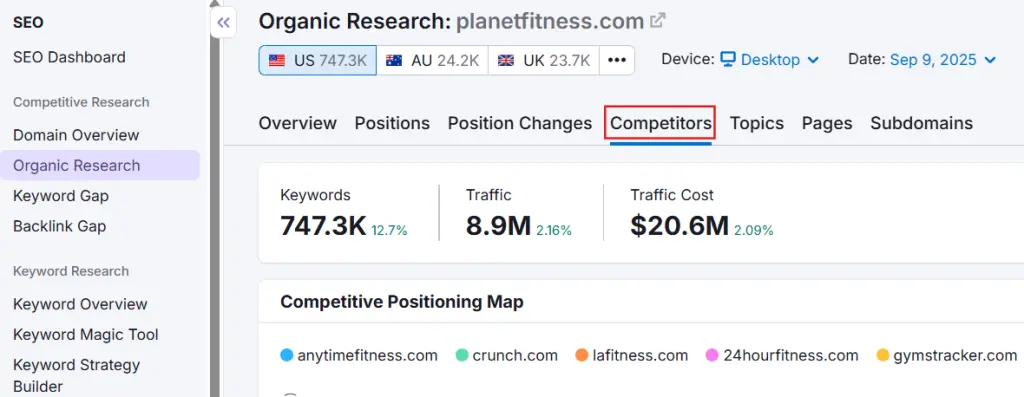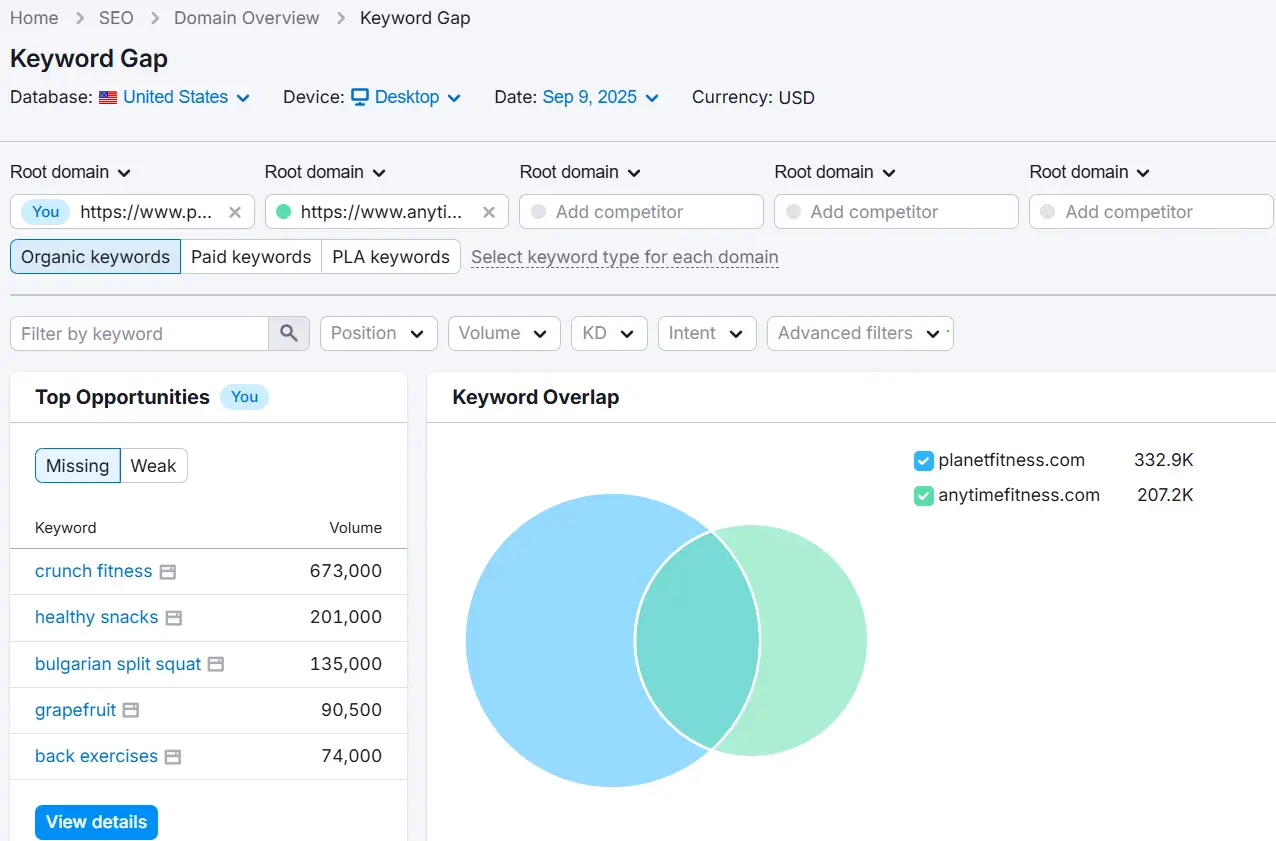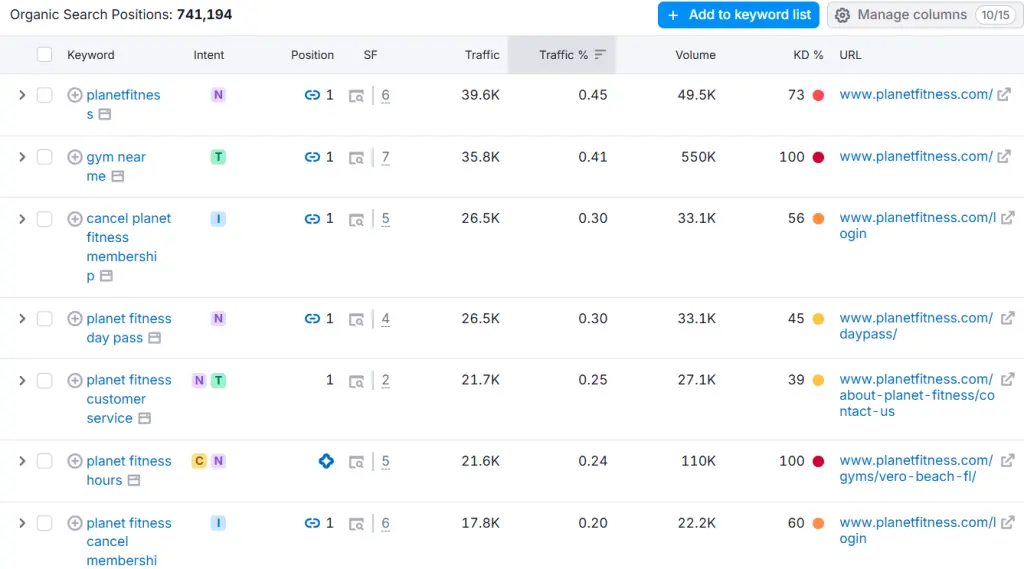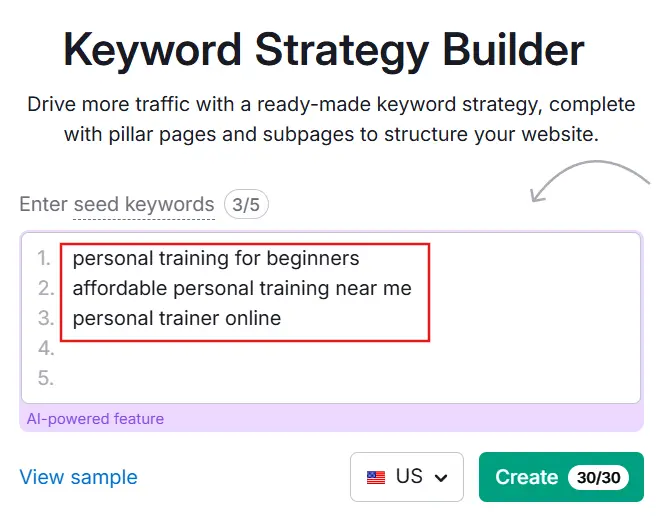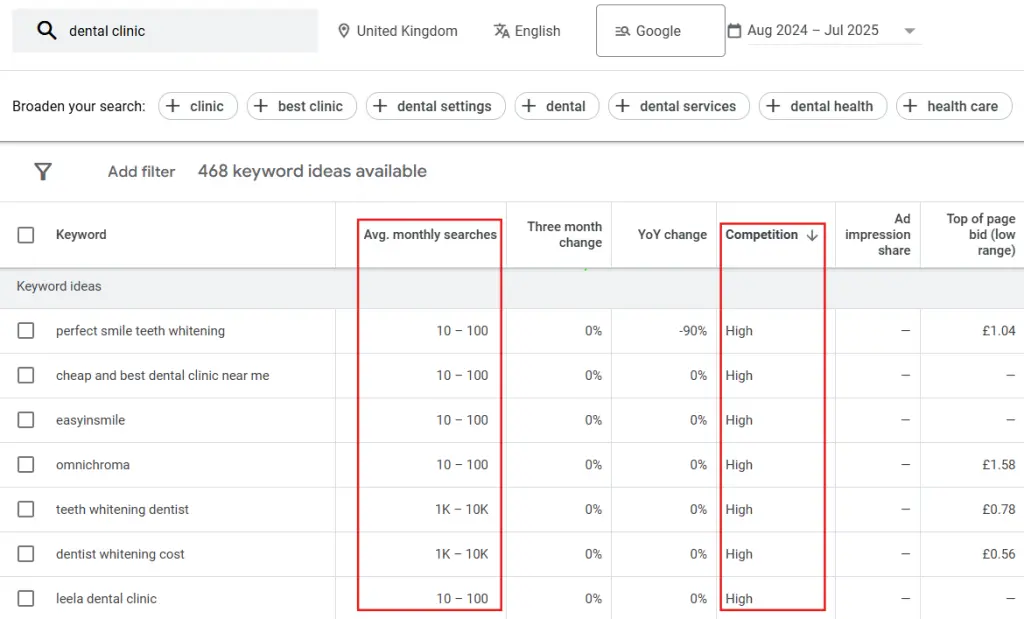Table of Contents
Long-tail keywords are the backbone of SEO. As a newbie, it’s always hard for you to rank your website with keywords that have higher search volume.
In such a case, long-tail keywords play a vital role that can help you boost your ranking and gain more traffic. Well, even if you have an established eCommerce store with good ROI, implementing long tail keywords can always help you attract a larger target audience.
Furthermore, as per resources, around 70% of search queries are in the long tail format ( Source: embryo), which tends to have a higher conversion rate compared to higher volume keywords. In this article, we will explore how advanced eCommerce keyword research for your Shopify eCommerce store will help you find long-tail keywords and maximize your SERP rankings.
Understanding the Basics of Keyword Research
 As a Shopify store owner, you are aware that keywords play a vital role when it comes to ranking your product, landing, category pages, and more. Having relevant keywords that reflect your brand or store can help gain more traffic. Before we directly dive into long tail keywords, let’s understand the basics of eCommerce keyword research
As a Shopify store owner, you are aware that keywords play a vital role when it comes to ranking your product, landing, category pages, and more. Having relevant keywords that reflect your brand or store can help gain more traffic. Before we directly dive into long tail keywords, let’s understand the basics of eCommerce keyword research
Search Volume
Keyword search volume is mostly measured in average monthly searches. This is the number of searches every month for every specific search phrase (keyword). Ideally, you are searching for the keywords with the highest search volume.
Ranking highly with more search terms with higher search volumes means more robust traffic and conversion potential for you and your store. Unfortunately, there is no magic number that represents the perfect search volume for everyone.
Analyzing Competition
Search volume and keywords aren’t the only things you need to look for. Competition is also of the utmost importance; if not, then there’s no point in trying to rank for keywords you have no chance of ranking for. Competition refers to the difficulty of ranking for each particular keyword.
Topical Authority
As search engines improve and more emphasis is placed on related terms, quality content, and natural language. You need to highlight your website’s expertise by offering in-depth, interconnected content. Clients will want to click on your website if they consider you a trusted source of information for a certain topic. Authoritative content and a good reputation will help you rank highly on SERPs. Now, let’s understand more about long-tail keywords.
What are Long Tail Keywords?
 Long-tail keywords mostly consist of three to four words or even more. They are mostly very particular about a product like Puma sneaker shoes, or there may be a question that the end user may ask, like “Running Shoes for winter.”
Long-tail keywords mostly consist of three to four words or even more. They are mostly very particular about a product like Puma sneaker shoes, or there may be a question that the end user may ask, like “Running Shoes for winter.”
Short-tail keywords, as you might guess, are of one or even two words, like running shoes, sneaker shoes, etc
To help you understand, let’s search on Google
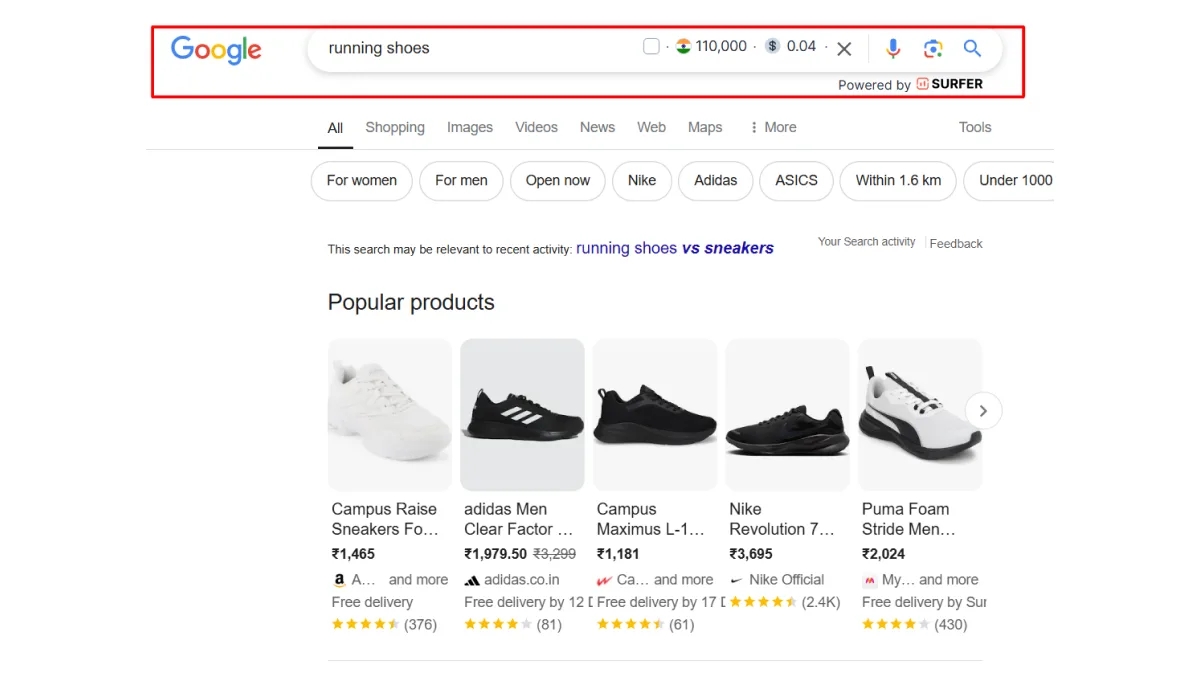 For example, when you search for running shoes, the intent is a little clear to Google that the user is searching for running shoes, but it’s not very clear whether the user is searching for running shoes for men, women, or kids.
For example, when you search for running shoes, the intent is a little clear to Google that the user is searching for running shoes, but it’s not very clear whether the user is searching for running shoes for men, women, or kids.
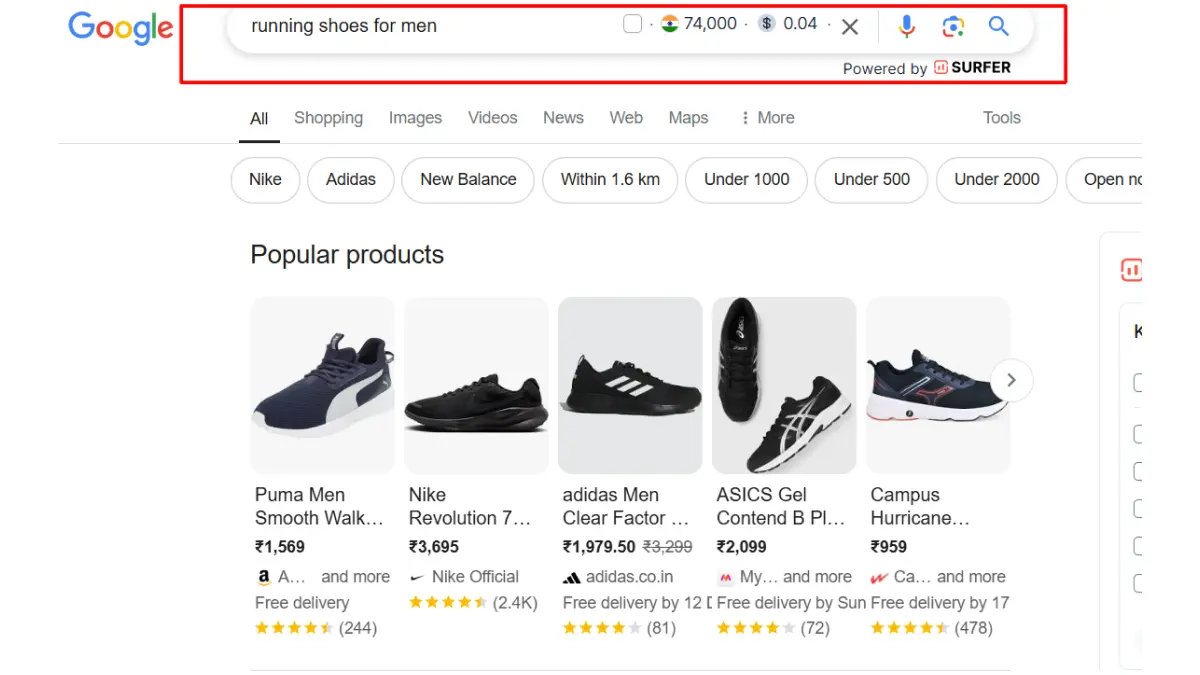
So, when the user specifies their requirement by adding extra information, it helps Google to show them exact results that match their needs. You can refer to the image below to understand long-tail keywords.
Why Long-Tail Keywords Are Essential for E-commerce
 Less Competition
Less Competition
When it comes to competition, long-tail keywords are less competitive than shorter ones. For instance, if you are searching for roses, it shows around 823,000 searches.
Similarly, when you add a red rose bouquet for a wedding, it shows around 1000 search results. Long-tail keywords have high conversion ratesLong-tail keywords aren’t longer.  They are more particular with mostly commercial or transactional search intent. In other words, people looking for long-tail search terms usually have a buying intent compared to those of just short-tail keywords.
They are more particular with mostly commercial or transactional search intent. In other words, people looking for long-tail search terms usually have a buying intent compared to those of just short-tail keywords. For instance, take a keyword like ’Personal training’, someone searching for personal training is probably learning about how it can benefit or how it works, which states that they are not ready to purchase anything.
For instance, take a keyword like ’Personal training’, someone searching for personal training is probably learning about how it can benefit or how it works, which states that they are not ready to purchase anything.
But Someone searching for a longer version, like ’personal training courses’, is closer to making a purchase. So, the traffic you get from long-tail terms has a higher conversion rate than traffic from head terms, as it probably comes from robust clients.
Advanced Tools used for Finding Niche Keywords
How to Find Long-term Keywords Using Ahrefs?
1. Don’t rely on Google Autosuggest: Google Autosuggest shows popular searches, not long-tail keywords. Tools that scrape Autosuggest (like Answer the Public) mostly give popular, competitive keywords.
 2. Use Ahrefs’ Keywords Explorer: Type a broad keyword related to your niche, “Business Books.” Filter results by search volume and keyword difficulty (KD) to find less competitive, long-tail keywords. Check the “Questions” tab for keyword ideas phrased as questions, such as: “how to start a home garden” or “best plants for home gardening beginners”.
2. Use Ahrefs’ Keywords Explorer: Type a broad keyword related to your niche, “Business Books.” Filter results by search volume and keyword difficulty (KD) to find less competitive, long-tail keywords. Check the “Questions” tab for keyword ideas phrased as questions, such as: “how to start a home garden” or “best plants for home gardening beginners”.
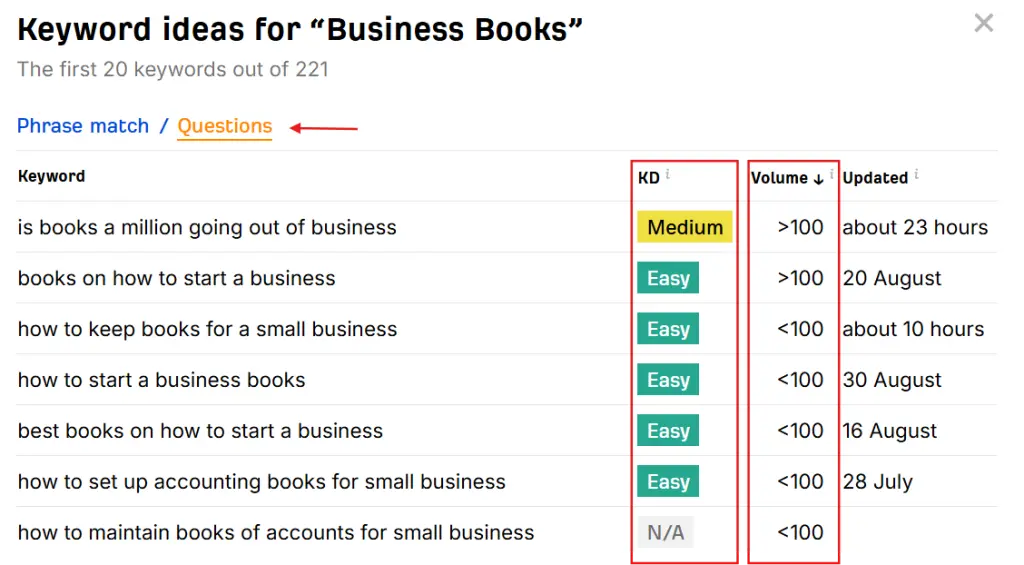 3. Check your competitors’ keywords: Use Ahrefs’ Site Explorer to see which long-tail keywords your competitors rank for. Enter their website (e.g., greenthumbblog.com), go to the Organic Keywords report, and find keywords driving traffic to them.
3. Check your competitors’ keywords: Use Ahrefs’ Site Explorer to see which long-tail keywords your competitors rank for. Enter their website (e.g., greenthumbblog.com), go to the Organic Keywords report, and find keywords driving traffic to them.
4. Browse forums like Reddit and Quora: Start by searching for topics related to your niche, such as “home gardening advice.” Look for common questions people ask, like “What are the best vegetables to grow in a small garden?” or “How often should I water my home garden?” Then, use Ahrefs to analyze these questions by checking their search volume and keyword difficulty. This helps you identify valuable, less competitive keywords to target in your content.
How to Find Long-term Keywords Using Semrush?
1. Find your competitors: Type your website (e.g., planetfitness.com) into Semrush to see who else ranks for similar keywords.
2. See what keywords they use: Look at keywords your competitors rank for, such as “personal training,” “online fitness coaching,” or “weight loss programs.”
3. Find keywords you don’t have yet: Use the Keyword Gap tool to find keywords your competitors rank for but you don’t, like “home workout plans for beginners” or “virtual fitness coaching for seniors.”
4. Find specific long-tail keywords: Use the Keyword Magic Tool with a seed keyword like “fitness coaching.” It will suggest longer phrases such as “best online fitness coaching for busy moms,” “affordable personal training near me,” or “weight loss coaching for beginners.”
5. Organize your keywords: Put your keywords into groups (clusters) using the Keyword Strategy Builder to plan your content better, like “affordable personal training near me,” “personal training for beginners,” “personal trainer online”.
6. Use your keywords: Create website pages or blog posts targeting these keywords, like “Affordable Personal Training for Beginners” or “Top Virtual Weight Loss Coaching Programs.” Then track how well these pages rank.
How to Find Long-Term Keywords Using Google Keyword Planner?
1. Think about your business and what customers might search for: Write down words or phrases related to your products or services. (For example: You provide dental services, dental clinics, and dentists.)
2. Use Google’s Keyword Planner tool: Enter your ideas into Keyword Planner to get keyword suggestions and see how often people search for them. (Enter ideas like “dental clinic,” “dentist,” “dental practice.”)
3. Look for keywords with good search volume but low competition: These are easier and cheaper to target.
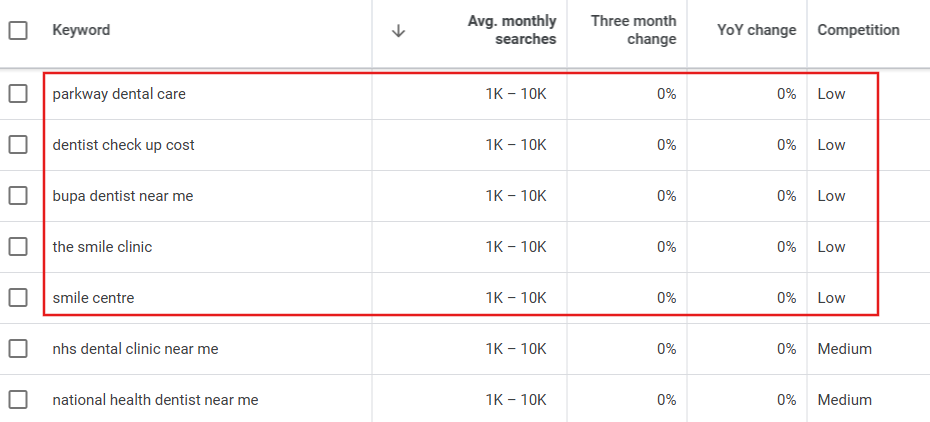 4. Choose keywords that match what your customers want: Focus on words that show a clear intent to buy or learn about your product. (Like: People searching “Dental clinic near me”, “Best Dentist near me.)
4. Choose keywords that match what your customers want: Focus on words that show a clear intent to buy or learn about your product. (Like: People searching “Dental clinic near me”, “Best Dentist near me.)
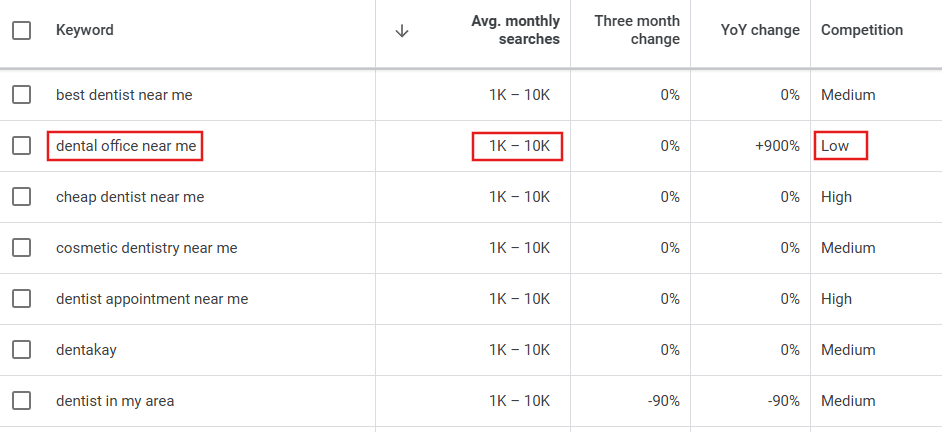 5. Group similar keywords together: This helps you create relevant ads for each group. (Like dental clinic, dentist in my area, dental office near me.)
5. Group similar keywords together: This helps you create relevant ads for each group. (Like dental clinic, dentist in my area, dental office near me.)
Summing Up
Advanced eCommerce Keyword research is vital for eCommerce businesses looking to stand out in a competitive market. By attracting niche long-tail keywords, you can attract highly targeted traffic, maximize conversion rates, and develop a stronger connection with your audience. If you are not aware of how you can add long-tail keywords to your website, you can get Shopify SEO Services for your store that can help you maximize your store’s conversion rate with the best ROI.






